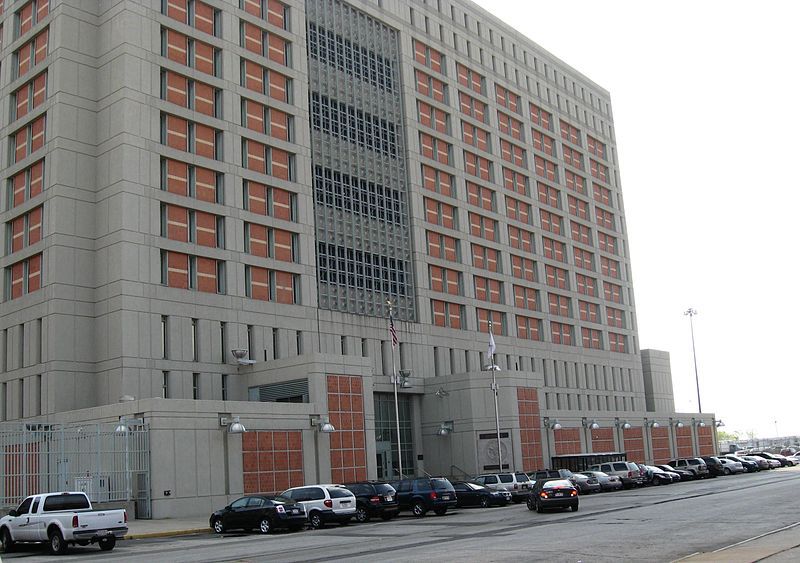The Fortune Society and CUNY John Jay College Institute for Justice and Opportunity held a rally this week to demand reform for incarceration-related housing inequities.
Associate Vice President at the David Rothenberg Center for Public Policy of the Fortune Society Andre Ward was the host of the virtual event with other members of the society participating in an in-person rally on the steps of the Manhattan Detention Center, 125 White Street in Lower Manhattan, known to the incarcerated as “the tombs.”
Throughout the event, titled “With Just Two Weeks Until Funding for COVID-19 Reentry Hotels Expires, Impacted People & Allies Call for Prioritized Funding & Legislative Change,” had a series of speakers, many who had been arrested or convicted in the past.
As the expiration for COVID-19 funding to keep people recently released from prison and homeless people in hotel rooms looms in the next two weeks, advocates for housing justice for formerly incarcerated individuals felt that it was the time to call for a renewal of the funding.
The idea of temporarily housing these groups of people in hotels to slow the spread of the coronavirus was controversial at first, but advocates such as Ward want to see it extended.
Additionally, the participants called to reform the housing laws, which allow landlords of both private and public residential properties to discriminate against people who were once incarcerated.
While there have been anti-discrimination laws in place for employment, there is no equivalent legislation for housing, Ward explained in his opening statements.
No matter the offense or how long the incarceration period, any landlord, except for those properties that are fully funded by the state, can refuse to accept people who have a criminal record.
These strict rules make obtaining a safe place to live a difficult feat for anyone who has an arrest or conviction on their record.
“Housing is a human right,” said Salik Karim from the Institute for Justice and Opportunity. “How can I apply for housing, when I have nowhere to live? Where is my address?”
Some speakers tied this issue in with systemic racism, as landlords can use incarceration status as an excuse to not provide housing to people of color. Other speakers, however, acknowledged that white people and women who had been in prison experience the same issues.
Assemblymember Walter Mosley (D- Fort Greene, Clinton Hill, Prospect Heights, Crown Heights, Bedford-Stuyvesant), who attended the event, expressed concern on the issue.
“We understand that legislation dealing with housing discrimination has to be addressed, because if we don’t do that, then we’ll find ourselves a grade of incomplete,” Mosley said. “Incomplete for working-class men and women and their families. Incomplete for people of color. Incomplete for young professionals. Incomplete for those who are trying to find their way in the city, trying to live their lives as anyone else, free from any form of inequality, free of any type of discrimination and bigotry.”
he speakers went on to explain that not only can private landlords deny previously-incarcerated people from getting housing, but so can the New York City Housing Authority, which is a public organization.
Current NYCHA policy prohibits a person who was once incarcerated on felony convictions to live in an NYCHA apartment, whether it is their name that is on the lease or not. A person with a felony criminal record isn’t even allowed to enter an NYCHA apartment for a family visit.
“Today I ask NYCHA, whose safety are you concerned about?” Director of Policy at the Institute for Justice and Opportunity Alison Wilkey said. “Whose safety are we talking about? Ninty-one-point-five percent of NYCHA residents are black or Latinx. So, whose safety are we talking about when we discriminate based on criminal history when we know that people of color are targeted by the police and we know that people of color are treated unfairly in the justice system and we know that people of color overwhelmingly suffer for the consequences and the perpetual punishment of having a conviction record that follows them for life.”






